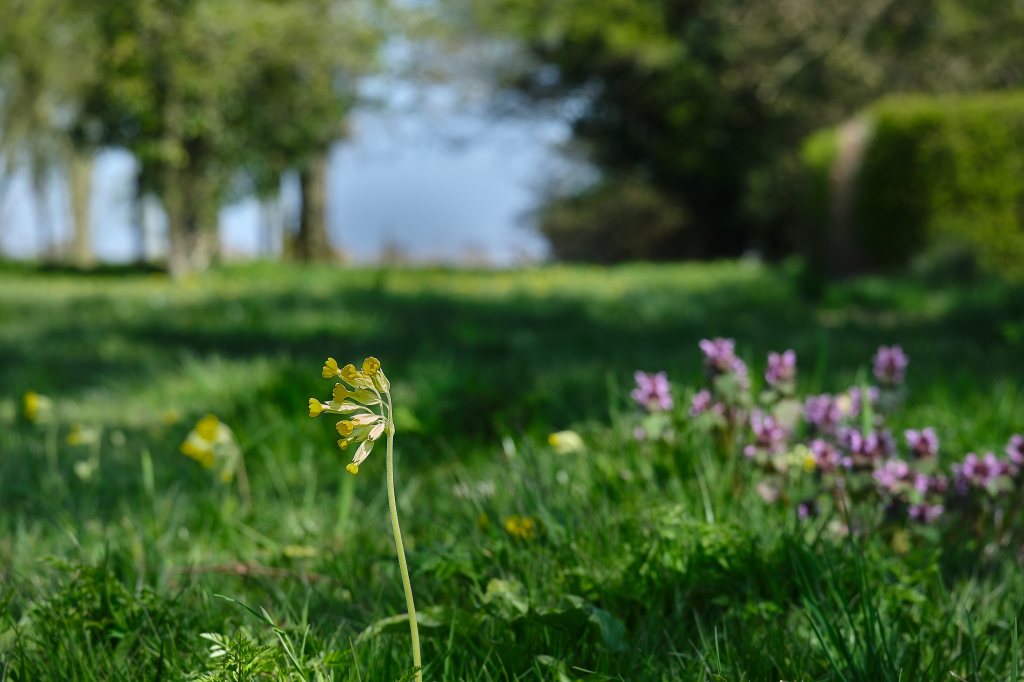
Bowing adorers of the gale,
Ye cowslips delicately pale,
Upraise your loaded stems;
Unfold your cups in splendour; speak!
Who decked you with that ruddy streak
And gilt your golden gems?
John Clare (1793 – 1864)
The “ruddy streak” on this specimen growing in the back of my garden turned out to be inside the bud, but the son of a Northampton labourer had a piercing poetic vision. One of the greats, forgotten and rediscovered in the early 20th century by poet Arthur Symons (whom we know by his book on the Symbolist Movement), John Clare is nowadays considered the true poetic voice of the English countryside. He was self-taught, yet had the gift of artistic perception, which compensated him for the lack of proper schooling. One example, which I recently stumbled across while leafing through a collection of Clare’s poems, speaks for itself:
The Secret
I loved thee, though I told thee not,
Right earlily and long,
Thou wert my joy in every spot,
My theme in every song.
And when I saw a stranger face
Where beauty held the claim,
I gave it like a secret grace
The being of thy name.
And all the charms of face or voice
Which I in others see
Are but the recollected choice
Of what I felt for thee.
You would instantly think of Petrarch’s Sonnet 16, which I reproduce below in Charlotte Dacre’s excellent translation:
The palmer bent, with locks of silver gray,
Quits the sweet spot where he has pass’d his years,
Quits his poor family, whose anxious fears
Paint the loved father fainting on his way;
And trembling, on his aged limbs slow borne,
In these last days that close his earthly course,
He, in his soul’s strong purpose, finds new force,
Though weak with age, though by long travel worn:
Thus reaching Rome, led on by pious love,
He seeks the image of that Saviour Lord
Whom soon he hopes to meet in bliss above:
So, oft in other forms I seek to trace
Some charm, that to my heart may yet afford
A faint resemblance of thy matchless grace.
The last three lines:
cosí, lasso, talor vo cerchand’io,
donna, quanto è possibile, in altrui
la disïata vostra forma vera.
match Clare’s last stanza very closely. I am sure that he’d never heard of the great sonneteer, much less read anything of his.
John Clare was born and lived the first 40 years of his life in Helpston, Northamptonshire, barely 40 miles from where I am typing these lines. His cottage is still standing.
I must pay a visit.
One thought on “Cowslip and English Romanticism”